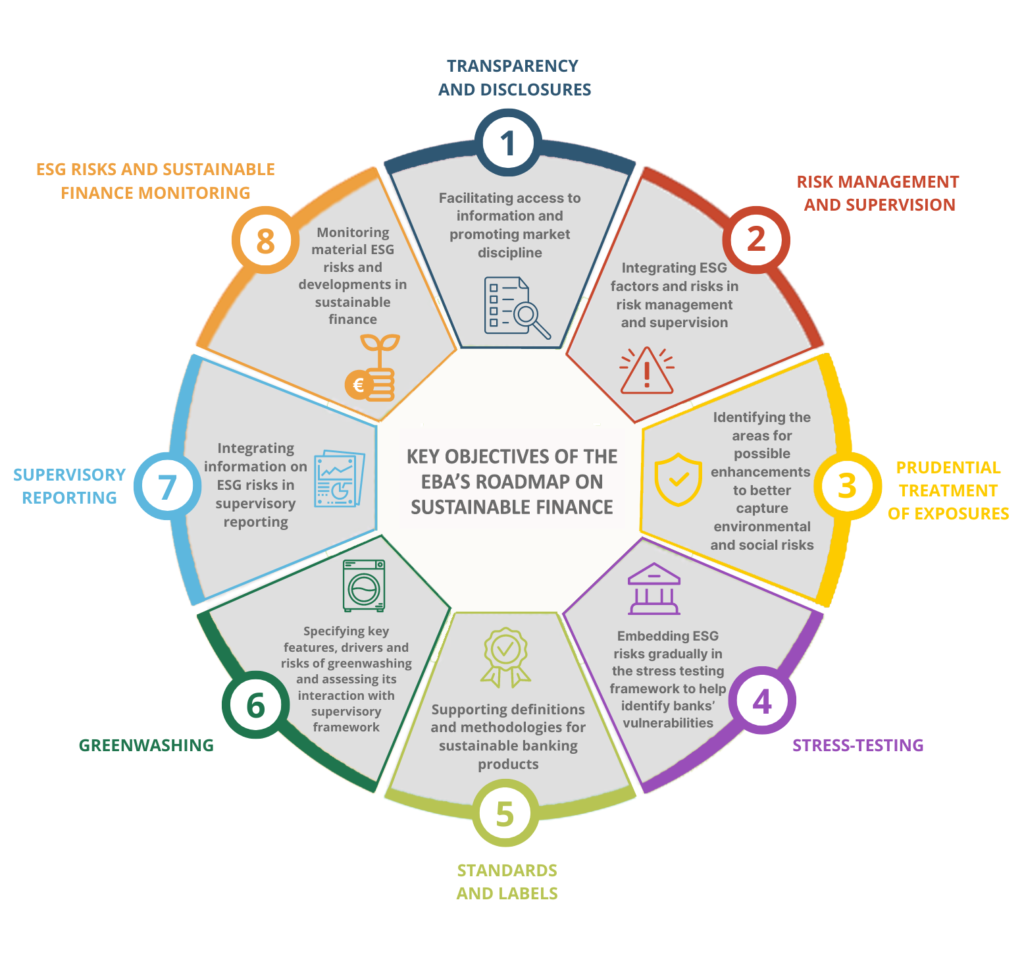The roadmap for completing mandates and tasks in the areas of sustainable finance and environmental, social, and governance (ESG) risks was released today by the European Banking Authority (EBA). The roadmap outlines how the EBA will integrate ESG risk considerations into the banking framework over the next three years and support the EU’s efforts to transition to a more sustainable economy.
Due to numerous legislative actions and initiatives, the EBA has received new mandates and responsibilities in sustainable finance and ESG risks. Most of these duties and responsibilities are directly related to the EBA’s overarching goal of promoting the financial system’s resilience, stability, and orderly operation. The three pillars of the banking framework—market discipline, supervision, and prudential requirements—as well as other aspects of sustainable finance and evaluating and monitoring ESG risks, are all covered by these mandates and responsibilities.

The EBA’s first action plan on sustainable finance, released in December 2019, is built upon and replaced by this roadmap on sustainable finance. The roadmap ensures that the actions taken under the initial action plan are continued while also allowing for any necessary adjustments due to market and regulatory developments, such as new mandates and areas of focus.
In prudential regulation, the EBA has started evaluating whether it would be justified to change how exposures are treated prudentially to consider environmental and social factors.
The EBA will also help create green standards, labels, policies, and ways to deal with new risks in this industry, like greenwashing. Finally, the EBA will evaluate and keep track of changes in sustainable finance and the ESG risk profile of institutions, in part based on the anticipated supervisory reporting.
The roadmap was created using the regulatory environment as it is now, and it includes the EBA’s current expectations for various mandates and tasks. However, given the ongoing regulatory developments, such as the review of the banking package (CRR/CRD), it is only after the legislative processes are concluded that the scope and timelines of specific tasks will be fully understood.






